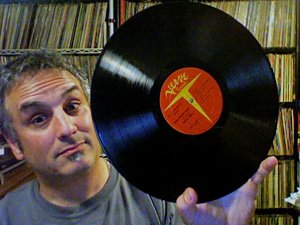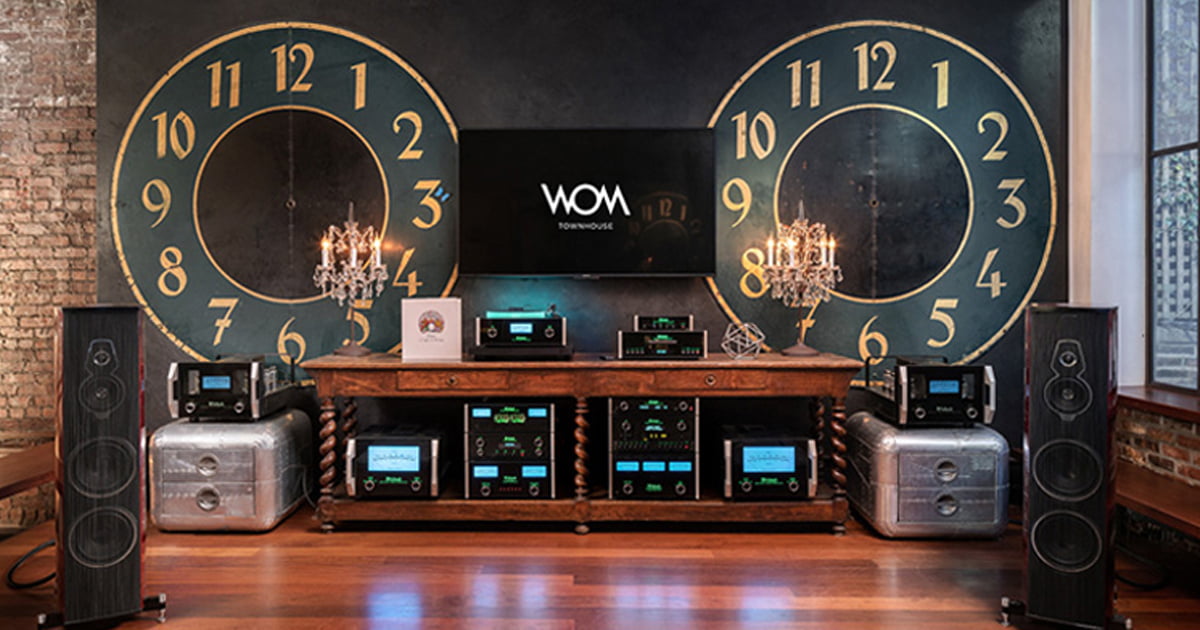It’s the time of year for saving money!
The 1950s were a curious time of transition, one part relieved reaction to the end of World War II –and the subsequent moving-onward promise of happier, prosperous times — and one part dread and fear as the Korean War busted out while The Cold War brewed.
 Two fine new boxed set CD collections explore diverse musics related to these flip sides of the fifties. Recently, we looked at Numero Group’s new Technicolor Paradise, a fascinating study in the emergence of the loose and light-hearted escapist genre of music known as Exotica.
Two fine new boxed set CD collections explore diverse musics related to these flip sides of the fifties. Recently, we looked at Numero Group’s new Technicolor Paradise, a fascinating study in the emergence of the loose and light-hearted escapist genre of music known as Exotica.
Now, in this review we look at something far more in-your-face as Bear Family’s massive four-CD-plus-hardcover-book boxed set walks you through an overlooked period in music history (and history in general). Titled Battleground Korea – Songs and Sounds of America’s Forgotten War, this well thought through and prepared set presents a deep primer on the underlying vibe of the times as the U.S. entered another overseas war. Like Technicolor Paradise, this set is also broken out into categories which helps put the music into vital context and also like that set, this comes with well researched documentation explaining it all (more on that in a bit).
Much of the music on the first disc, subtitled Going To War Again, displays quite a bit of foreboding as artists express their worries across tracks like “War News Blues” (Lightning Hopkins), “Got To Go Back Again” (The Four Barons) and “Here We Go Again” (Harvey Stone). Even Fats Domino turned in a B-side called “Korea Blues” (one of the odder tracks on the album thus far with curiously out-of-sync bugle-like overdubs). B.B. King and John Lee Hooker express draft time woes in two versions of “Questionnaire Blues.”
Indeed, the Korean War was a different beast than World War Two and from this set we start to sense that some seeds of social unrest — which blossomed in the 1960s (during the Vietnam War period) — were being sown at this time.

Disc Two, Somewhere in Korea, gives the listener aural front lines perspectives. Between the music, taped news reports from the battle grounds provide disturbing audio flashbacks to this scary time as you can hear artillery going off as they describe what is going on there; Eric Sevaraid presents this bleak report from CBS News reporter Robert Pierpoint who concludes “Our land will be sorry you ever got into this. Our land will be sorry we ever got into this.” Chilling stuff. The sadness of war’s realities comes through in droves, from The Delmore Brothers’ heartsick country blues (“Heartbreak Ridge”) to Elton Britt’s somber plea for Red Cross blood donations in “Korean Mud” as a funereal “Taps” is employed as a signature riff, performed on a distant church organ (and this was apparently a real song, not a public service announcement). Even Howdy Doody chimes in to encourage “kids” to go down to the blood bank to donate. Tommy ‘Weepin’ and Cryin” Brown’s “No News From Home” and Sherman ‘Blues’ Johnson’s “Lost In Korea” (replete with the sound of bombs dropping and exploding in the background!) don’t help to elevate the mood much.
Ok, so I think you get the idea that this is a pretty heavy listen, folks…
On The Homefront, Disc Three’s telling titles include Tex Ritter’s “Daddy’s Last Letter,” Jackie Doll & His Pickled Peppers’ jaunty country swing romp “When They Drop The Atomic Bomb” and Skeets McDonald’s “Please Daddy Don’t Go To War.” Ray Snead’s “Fade Away Baby,” Gene Autry’s “Old General’s Never Die” and Jimmy Short’s “(Old General’s Never Die) They Just Fade Away” were all released in response to General MacArthur’s retirement speech (in which he would end his military career “and just fade away,” a reference to older so-called “barracks ballads” from past wars)
Sister Rosetta Tharpe’s perfectly timed upbeat gospel-tinged rhythm ‘n blues-y “There’s Peace In Korea” was recorded the day President Eisenhower ended the war, released just a few days later on August 1 1953 — this track kicks off the final disc, Peace And Its Legacies. A more upbeat affair mostly, there are still bluesy moments of somber reflection such as Lightning Hopkins’ “The War Is Over” and Arthur Big Boy Crudup’s similarly titled r’n b driven swagger, both presenting different perspectives on soldiers returning to their loves. Some songs are cautiously optimistic, such as Dave Bartholomew’s bluesy “No More Black Nights” and Jimmy Witherspoon’s “Back Home.” “Missing in Action” by Ernest Tubb is fascinatingly based on an 1894 poem by Alfred Lord Tenyson but recast in Korea — underscoring the notion of how the bleak realities of war are timeless and never really change.

And so it goes throughout Battleground Korea – Songs and Sounds of America’s Forgotten War. This isn’t the semi-lighthearted take on the war as delivered on the legendary 1970s TV comedy series, M.A.S.H. No, from a musical standpoint you are clearly reminded about war’s harsh realities in this heart-checking set. This finely curated history lesson is something you won’t find on digital streaming formats like Tidal. Even if it was, if you are interested in hearing this music and learning about the period of time, you’d want to get this set for the 160-page, full size hard cover book that accompanies and describes the music (you even get lyrics to the songs!). You can find Battleground Korea – Songs and Sounds of America’s Forgotten War at your favorite stores or online at places like Amazon.
Like Technicolor Paradise the music here sounds quite good across all the CDs in the set and is notable for its remarkable consistency from song to song, given that it combines 121 tracks from probably as many labels. There are some inevitable disc-sourced recordings here and the radio air checks are sometimes of archival fidelity. But all in all this comprehensive collection from Bear Family delivers a fascinating snapshot of the times and underlying terror snaking its way into our societal mindset.









